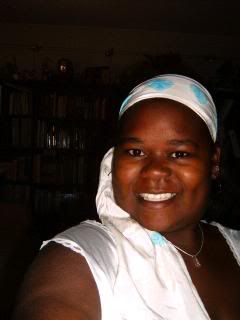This year, however, I will be doing my own version of Kwanzaa. For each of the 7 days of this Celebration (December 26-January1) I will post something about Kwanzaa as I reflect on 2008 and release my hopes for 2009. Earlier this month, I was able to attend in a mini Kwanzaa event at Cypress College. (photos my back left side can be seen in the last picture)
Before December 26th, I thought I should give a little background information of Kwanzaa. All information that I have, I have gotten from The Official Kwanzaa website.
Kwanzaa is an African American and Pan-African holiday which celebrates family, community and culture. Celebrated from 26 December thru 1 January, its origins are in the first harvest celebrations of Africa from which it takes its name. The name Kwanzaa is derived from the phrase "matunda ya kwanza" which means "first fruits" in Swahili, a Pan-African language which is the most widely spoken African language.
The first-fruits celebrations are recorded in African history as far back as ancient Egypt and Nubia and appear in ancient and modern times in other classical African civilizations such as Ashantiland and Yorubaland. These celebrations are also found in ancient and modern times among societies as large as empires (the Zulu or kingdoms (Swaziland) or smaller societies and groups like the Matabele, Thonga and Lovedu, all of southeastern Africa. Kwanzaa builds on the five fundamental activities of Continental African "first fruit" celebrations: ingathering; reverence; commemoration; recommitment; and celebration. Kwanzaa, then, is:
- a time of ingathering of the people to reaffirm the bonds between them;
- a time of special reverence for the creator and creation in thanks and respect for the blessings, bountifulness and beauty of creation;
- a time for commemoration of the past in pursuit of its lessons and in honor of its models of human excellence, our ancestors;
- a time of recommitment to our highest cultural ideals in our ongoing effort to always bring forth the best of African cultural thought and practice; and
- a time for celebration of the Good, the good of life and of existence itself, the good of family, community and culture, the good of the awesome and the ordinary, in a word the good of the divine, natural and social.
More information to follow.




1 comment:
All my kids know about Kwanzaa begins and ends with quotes from KwanzaaBot on Futurama. I think that's not necessarily a bad thing.
It just doesn't seem like something that could add anything of value to our lives that we aren't already doing. Fundamentally, I don't understand why basic education requires a wrapping of celebration.
That said, we definitely do our own thing - so I can't say I'm married to traditionalism either.
I suppose it comes down to rejecting yet-another-celebration (so common in the suburbs these days) that has an unfortunate timeing of arriving when our family is hip deep in a special time where we concentrating on giving thanks and looking out for others.
I arrived here because I saw you were reading my blog, and I started reading yours. Make room on your blog couch, because I'll be coming over a lot, I think.
Post a Comment